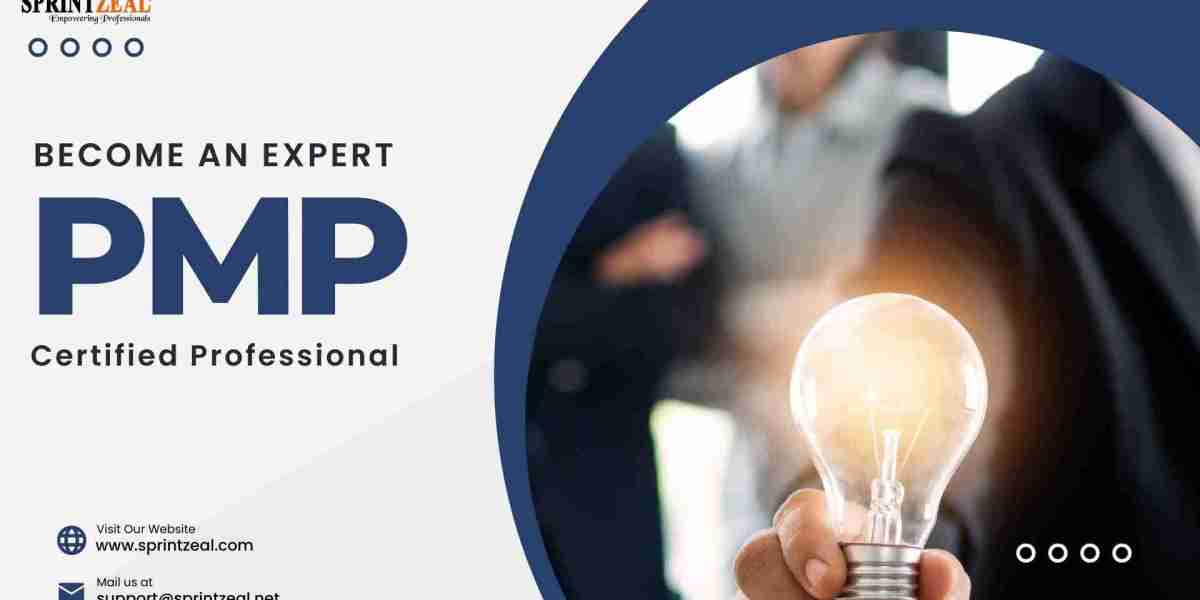Introduction
The Project Management Professional (PMP) certification is a highly recognized credential in the field of project management. It demonstrates an individual's knowledge, skills, and commitment to the profession. If you are starting from scratch and aspiring to become a PMP-certified professional, this comprehensive training guide will provide you with the necessary steps and resources to achieve your goal.
Understanding the PMP Certification
Before embarking on your journey towards PMP certification, it's essential to familiarize yourself with the certification itself. The Project Management Institute (PMI) is the governing body responsible for the PMP certification. It sets the standards, guidelines, and framework for project management professionals.
Meeting the Eligibility Criteria
To be eligible for the PMP certification, you need to meet certain requirements outlined by PMI. These include:
A four-year degree (bachelor's or global equivalent)
36 months of leading projects if you have a bachelor's degree, or
60 months of leading projects if you have a high school diploma or an associate's degree
Additionally, you must have accrued 35 hours of formal project management education.
Studying the PMBOK Guide
The Project Management Body of Knowledge (PMBOK) Guide is a fundamental resource for PMP certification. It provides a comprehensive overview of project management processes, knowledge areas, and best practices. Devote time to thoroughly understand the concepts presented in the PMBOK Guide and make it your go-to resource throughout your preparation.
Developing a Study Plan
Creating a study plan is crucial for effective preparation. Start by assessing your current knowledge and identifying areas where you need improvement. Divide your study time into manageable chunks, setting aside specific hours each day or week for studying. Allocate extra time for more challenging topics and ensure you maintain a consistent study routine.
Enrolling in a PMP Exam Prep Course
Consider enrolling in a PMP exam prep course to supplement your self-study efforts. These courses are designed to provide structured learning, exam-focused content, and practice questions to enhance your understanding of project management concepts. Choose a reputable course provider that aligns with your learning preferences.
Utilizing Additional Study Resources
In addition to the PMBOK Guide and exam prep course, leverage other study resources available. This includes PMP exam preparation books, online forums, practice tests, and flashcards. These resources provide alternative perspectives, additional examples, and opportunities to practice applying your knowledge by sprintzeal.
Practicing with Sample Questions
To familiarize yourself with the exam format and improve your test-taking skills, practice with sample questions. PMI offers a free practice exam on their website, and there are numerous online platforms that provide mock tests specifically tailored for the PMP exam. Regularly reviewing and analyzing your performance will help identify areas that require further attention.
Joining Study Groups or Forums
Engaging with like-minded individuals pursuing PMP certification can be immensely beneficial. Joining study groups or online forums allows you to exchange knowledge, discuss complex topics, and gain insights from others' experiences. These interactions foster a collaborative learning environment and provide support throughout your preparation journey.
Creating a Personalized Study Approach
Everyone has different learning styles and preferences. Tailor your study approach to suit your needs. Experiment with various techniques, such as visual aids, mind maps, or mnemonic devices, to reinforce your understanding of concepts. Find what works best for you and adapt your study materials accordingly.
Reviewing and Refining
As you progress through your preparation, regularly review previously covered topics to ensure you retain the information. The PMP exam covers a wide range of project management areas, so it's crucial to maintain a comprehensive understanding of all domains. Focus on areas where you feel less confident and dedicate additional time to reinforce those concepts.
Simulating the Exam Experience
In the weeks leading up to the exam, simulate the actual exam experience by taking full-length practice tests under timed conditions. This will help build your endurance, improve time management, and reduce exam anxiety. Analyze your performance and identify weak areas to concentrate on during the remaining study period.
Final Exam Preparation
In the final days before your exam, ensure you are well-rested and confident in your knowledge. Review key formulas, definitions, and processes. Take time to relax and recharge, as a clear mind can enhance your performance on exam day.
Conclusion
Becoming PMP certified is a significant achievement that opens doors to exciting career opportunities in project management. By following this comprehensive training guide, you will be equipped with the necessary knowledge, resources, and study techniques to embark on your journey from zero to PMP certified. Remember to stay focused, maintain discipline in your study routine, and believe in your ability to succeed. Good luck on your path to becoming a certified PMP professional!








